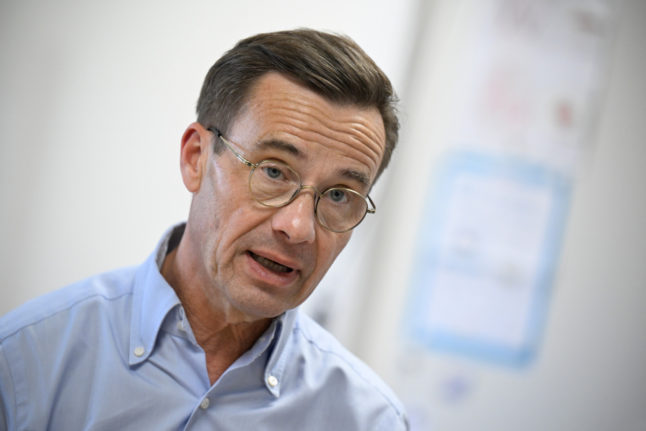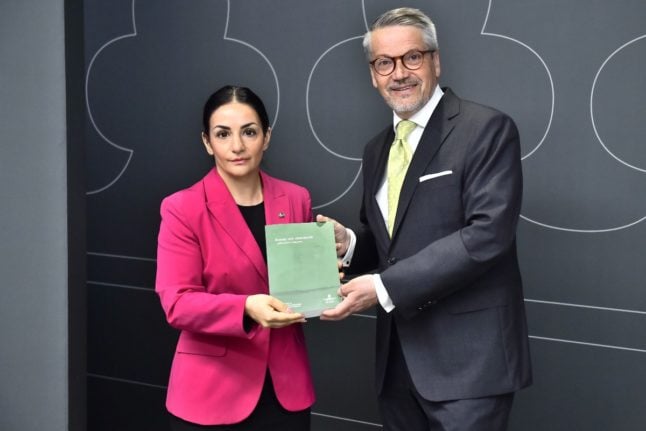Kristersson said he would meet on Friday with the national chief of police and commander in chief Micael Bydén “to see how the armed forces can help the police fight the gangs”.
The Scandinavian country has in recent years been in the grip of a bloody conflict between gangs fighting over arms and drug trafficking, which has escalated over vendettas between the gangs.
TIMELINE:
Apartment buildings and homes across the country are frequently rocked by explosions, and shootings in public places have become regular occurrences in the usually tranquil country.
“We are going to hunt down the gangs. We are going to defeat the gangs,” Kristersson said in a televised address to the nation on Thursday evening, after three people were killed in shootings and explosions overnight on Wednesday.
An 18-year-old man was shot dead at a crowded football pitch early Wednesday evening in a well-off Stockholm suburb, police said.
A second shooting took place around midnight in another Stockholm suburb, injuring two people, one of whom later died, police said, adding that three suspects had been arrested in that case.
Several hours later, an explosion near the university town of Uppsala, 70 kilometres north of Stockholm, damaged five homes and killed a woman in her mid-20s with no known connection to the gangs, according to police.
The surge in killings has shocked Swedes.
“Crime has reached unprecedented levels. The situation is very serious in Uppsala, and in the rest of the country,” Uppsala police official Catarina Bowall told reporters.
According to a tally by Swedish public television SVT, 12 people have been killed in shootings and explosions in September, the deadliest month in terms of fatal shootings in the past four years.
One of the dead was a 13-year-old boy whose body was found dumped in a wooded area. Prosecutors said they believed he was a victim of the gang violence.
“An increasing number of children and completely innocent people are affected by this extreme violence,” Kristersson said.
“Sweden has never seen anything like this. No other country in Europe is seeing anything like this.”
He said serious organised crime had risen over the past decade “due to naiveté”.
“An irresponsible immigration policy and failed integration led us here,” the conservative leader said.
“Swedish legislation was not designed for gang wars and child soldiers. But we’re changing that now,” he said.
He noted new legislation entering into force in the coming days enabling police to wiretap gangs, as well as plans for body searches in some areas, harsher sentences for repeat offenders and double sentences for certain crimes.
“We’ll put them on trial. If they are Swedish citizens they will be locked away with long prison sentences, and if they are foreigners they will be deported,” he said.
“We are going to deport foreigners who move in criminal gang circles even if they haven’t committed a crime,” he said.
He said Sweden also needed to introduce surveillance cameras in public places and build special prisons for teenage criminals.
In 2022, Sweden registered 391 shootings, 62 of which were fatal.



 Please whitelist us to continue reading.
Please whitelist us to continue reading.
Member comments